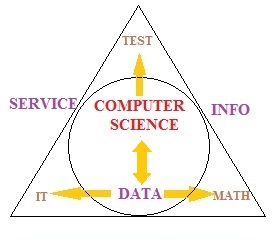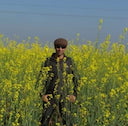Operations Research
Homework Help & Tutoring
We offer an array of different online Operations Research tutors, all of whom are advanced in their fields and highly qualified to instruct you.
Operations Research
The various militaries of World War II were the first to develop what would come to be regarded as the field of modern operations research, starting with the effort in the United Kingdom to analyze and improve their early warning radar system. Since that time, operations research has expanded into a wide range of problem-solving techniques, which according to the Journal of Operations Research, are used in computing, information technology, environmental studies, energy use analysis, natural resource allocation, financial engineering, manufacturing, service science, supply chain management, policy modeling, public sector work, revenue management, simulation, stochastic models, and transportation. As you can see, there is no shortage of applications for operations research.
The main tools of operations researchers are mathematical modeling, statistical analysis, and mathematical optimization, all aimed at optimizing efficiency or performance of the system under study. It is often used to determine maxima of beneficial areas such as profits, performance, or yields; and minima of detrimental things like losses, risks, or cost.
Due to the computational nature of operations research, the work is closely tied to the field of computer science, therefore a good course in operations research will typically involve study of the following:
- MODEL BUILDING
- LINEAR ALGEBRA
- LINEAR PROGRAMMING
- THE SIMPLEX ALGORITHM AND GOAL PROGRAMMING
- SENSITIVITY ANALYSIS AND DUALITY
- TRANSPORTATION, ASSIGNMENT, AND TRANSSHIPMENT
- NETWORK MODELS
- INTEGER PROGRAMMING
- ADVANCED TOPICS IN LINEAR PROGRAMMING
- NONLINEAR PROGRAMMING
- REVIEW OF CALCULUS AND PROBABILITY
- DECISION MAKING WITH UNCERTAINTY
- GAME THEORY
- DETERMINISTIC EOQ INVENTORY MODELS
- PROBABILISTIC INVENTORY MODELS
- MARKOV CHAINS
- DETERMINISTIC DYNAMIC PROGRAMMING
- PROBABILISTIC DYNAMIC PROGRAMMING
- QUEUING THEORY
- SIMULATION AND PROCESS MODELS
- SPREADSHEET SIMULATION WITH @RISK
- FORECASTING
There are a host of good textbooks on operations research, not to mention a superb collection of operations research tutorials.
To fulfill our tutoring mission of online education, our college homework help and online tutoring centers are standing by 24/7, ready to assist college students who need homework help with all aspects of operations research. Our mathematics tutors can help with all your projects, large or small, and we challenge you to find better online operations research tutoring anywhere.
College Operations Research Homework Help
Since we have tutors in all Operations Research related topics, we can provide a range of different services. Our online Operations Research tutors will:
- Provide specific insight for homework assignments.
- Review broad conceptual ideas and chapters.
- Simplify complex topics into digestible pieces of information.
- Answer any Operations Research related questions.
- Tailor instruction to fit your style of learning.
With these capabilities, our college Operations Research tutors will give you the tools you need to gain a comprehensive knowledge of Operations Research you can use in future courses.
24HourAnswers Online Operations Research Tutors
Our tutors are just as dedicated to your success in class as you are, so they are available around the clock to assist you with questions, homework, exam preparation and any Operations Research related assignments you need extra help completing.
In addition to gaining access to highly qualified tutors, you'll also strengthen your confidence level in the classroom when you work with us. This newfound confidence will allow you to apply your Operations Research knowledge in future courses and keep your education progressing smoothly.
Because our college Operations Research tutors are fully remote, seeking their help is easy. Rather than spend valuable time trying to find a local Operations Research tutor you can trust, just call on our tutors whenever you need them without any conflicting schedules getting in the way.






